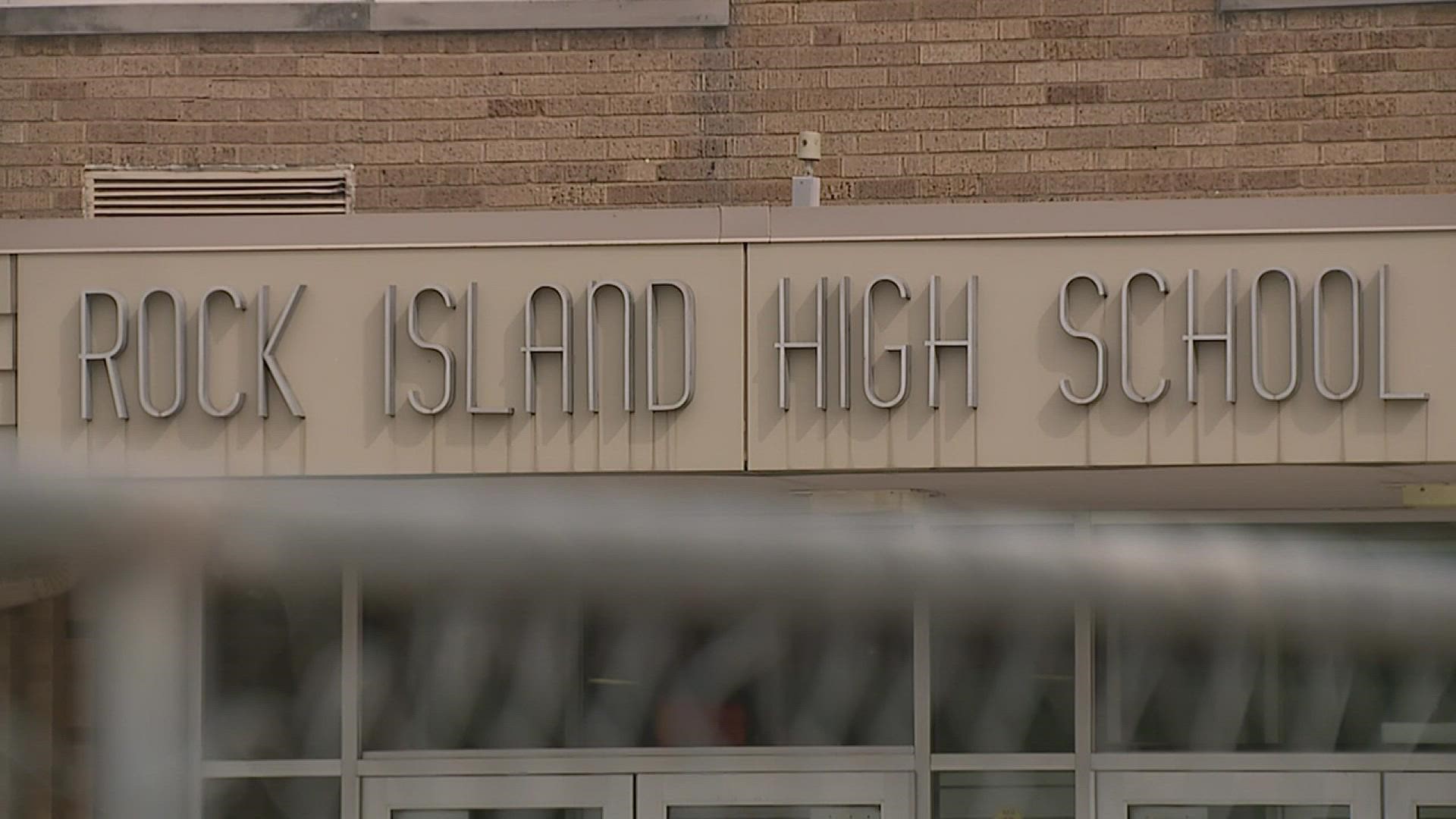ROCK ISLAND, Ill. — An updated report from the Illinois State Board of Education's (ISBE) 2020-21 academic report card shows a decrease in academic proficiency across the state, due to the Covid-19 pandemic.
In the Rock Island-Milan School District (RIMSD), students reported proficiency drops in English and math, as well as lowered SAT scores. However, district leaders are confident the pandemic's impact won't be felt for much longer, saying they have a plan to bounce back, and quickly.
The annual report relies on data from student assessments given in spring 2021, to roughly 90% of the state's schools. ISBE calculates nearly 70% of students reported.
Statewide, the toll of the pandemic was acutely felt, with lower academic achievement scores and one in five students being categorized as chronically absent, meaning they missed 10% of the school year. That number is calculated from every school day a child is not present, even if it's for medical reasons or an excused absence.
Of those who completed the assessment, ISBE found the transition to online testing to be a difficult one.
Every year, the state administers the Illinois Assessment of Readiness (IAR), to measure proficiency among different academic subjects. Results are categorized into 'proficient' (with subcategories of 'met' and 'exceeded') and 'below-proficient' (split into 'approached,' 'partially met,' and 'did not meet').
For the RIMSD, there is no recorded IAR data for 2020, so officials are comparing 2019 to 2021.
Between those two years, the district saw English proficiency fall from 22% of students to 13%. Math scores also declined, dropping from 21% to 11%. And SAT scores also suffered: English went from 21% proficient to 13%; math fell from 15% to 8%.
"We know that when we look at that data, though, we're not comparing apples to apples," said RIMSD Superintendent Dr. Reginald Lawrence. "Normally we test all of our students, and those amounts dropped down to (around) 80%. We know that there were a lot of people who didn't necessarily get to participate due to Covid."
Dr. Lawrence says he's taking the 2021 results with a grain of salt, and even anticipated the score declines to be even greater.
"To not be in school, almost all year, from day one, you don't get the chance to interact with your teachers, all your preparation is on a screen," he said. "Even though our students are resilient, I would have thought the scores would have been a tad-bit worse, due to all of those factors."
He says the current academic year, which will be assessed in spring, 2022, will be much closer to an 'accurate read' of how students are doing.
"We did know that last year was going to be an abnormal year with data," said Dr. Lawrence. "Moving into this year, which I'm looking at as a baseline year, this is sort of getting us back to normal."
The superintendent remembers a time before his tenure at RIMSD, over a decade ago, where learning was impacted in a slightly similar way. He said he saw the ripple effects on learning, comprehension and proficiency stretch out to as much as five years after the fact.
But this time around, he believes things will be different.
"I think we're better equipped to deal with (the pandemic's) impact because everyone's had to work so much harder to deal with this," said Dr. Lawrence. "I don't think the impact is going to be more than two to three years, only because we've got a lot of processes in place to help us attack the learning needs of students."
The district views the return to in-person learning as a huge advantage on that path, along with additional summer school, increased tutoring opportunities, as well as 'lifelong learning programs.'
And there were some interesting positives in the district's report.
Teacher retention made a slight increase to 91%, up from the state's average of 87%. And nearly-across the board, achievement gaps fell between students separated by low income/non-low income; Black/White; Hispanic/White; Black/Hispanic; male/female; and special education groups.
Moving forward, Dr. Lawrence says the most important thing is meeting students where they're at, to create a more resilient district.
"You have to try and use this data to find the positives on how you move forward," said Dr. Lawrence. "It really is just going to be focusing on where our students are at, getting a gauge of where they're at academically, socially, emotionally, and then trying to ensure that we can put some multi-tiered systems of support in there."

